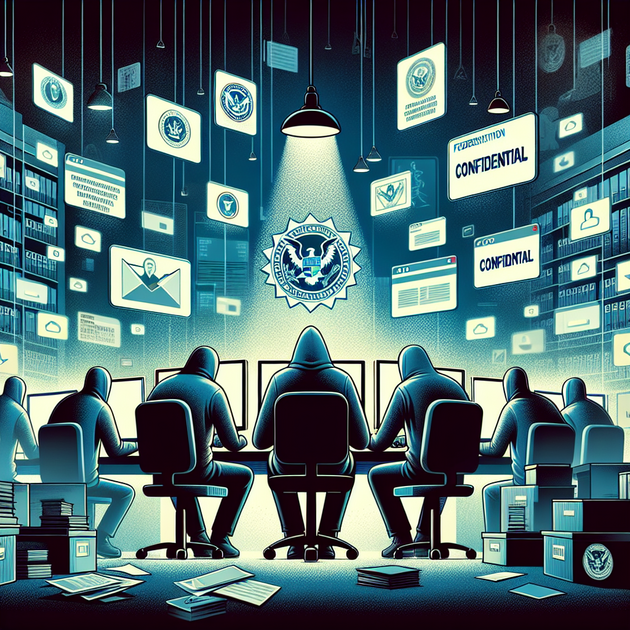Ever wonder how secure the personal data of top government officials really is? This question took center stage after a recent hack left hundreds of Department of Homeland Security (DHS), Immigration and Customs Enforcement (ICE), Federal Bureau of Investigation (FBI), and Department of Justice (DOJ) officials exposed.
According to multiple news reports, hackers released a massive trove containing names, phone numbers and home addresses—an alarming reminder that no one is completely safe from cyber threats.
What Exactly Happened in This Government Data Breach?
The incident unfolded when hackers allegedly infiltrated databases containing sensitive information about hundreds of high-ranking U.S. government employees. The stolen data included not just work-related details but also deeply personal contact information.
The details were then posted online on various forums commonly used for doxxing—a practice where private information is shared publicly without consent. While authorities have yet to confirm the full scope or source behind the breach publicly, major outlets like CBS News and BBC have confirmed the exposure.
Why Is Doxxing Government Officials So Serious?
Having private details like a phone number or home address out in the open can put anyone at risk—but it’s especially dangerous for people working in national security or law enforcement roles. Here’s why this kind of doxxing is such a big deal:
- Personal Safety Risks: Exposed officials could face harassment or threats at home.
- Operational Disruption: Leaked contacts can be used to impersonate or distract officials.
- National Security Concerns: Sensitive individuals may become targets for espionage or blackmail.
- Mental Health Impact: The stress on affected individuals and their families can be significant.
- Erosion of Trust: Citizens may lose faith in their government’s ability to protect sensitive data.
This isn’t just a theoretical problem—there are real-world consequences when this kind of information falls into the wrong hands.
How Do Data Breaches Like This Happen?
Most successful hacks rely on some combination of human error and technical vulnerabilities:
- Password reuse: Using similar passwords across different platforms makes accounts easy to compromise.
- Phishing attacks: Fake emails or links trick users into revealing credentials.
- Poor database security: Outdated systems without proper encryption are easy targets.
- Lack of multi-factor authentication: Single-factor logins are much easier to bypass.
Even agencies tasked with national security aren’t immune—something this breach has made uncomfortably clear.
A Real-World Glimpse Into the Fallout
Anecdotally speaking, imagine being an agent who spends years protecting your identity only to find your address suddenly plastered all over the internet. In one high-profile case reported by The New York Times, affected agents received threatening calls within hours after their contact details went public. Some had to move their families or invest in extra home security measures overnight.
It’s not just about inconvenience—it’s about genuine safety risks with real-world consequences for those who serve in sensitive positions.
The Bigger Cybersecurity Picture — And What Can Be Done?
This hack raises broader questions about how well any large organization can truly secure its data—especially when targeted by determined attackers. While federal agencies often lead in setting cybersecurity standards (see guidance from CISA), events like this show there’s always room for improvement.
Some key steps that can help reduce future risks include:
- Stronger password policies and regular updates
- Mandatory multi-factor authentication (MFA)
- Ongoing education on phishing tactics for staff at all levels
- Tighter access controls on sensitive databases
- Rapid response protocols for when breaches occur
While no system is foolproof against hacking attempts as creative as these recent ones targeting DHS ICE FBI DOJ officials, strengthening basic digital hygiene goes a long way.
A Final Thought: Where Do We Go From Here?
Stories like this make headlines because they’re shocking—but they also serve as wake-up calls that everyone’s privacy matters. If even top federal agencies can fall victim to hackers or doxxing campaigns, it highlights why robust cybersecurity practices are essential everywhere—from individual devices up to national infrastructure.
What steps do you think organizations should prioritize first when it comes to protecting sensitive information? Share your thoughts below!

Leave a Reply